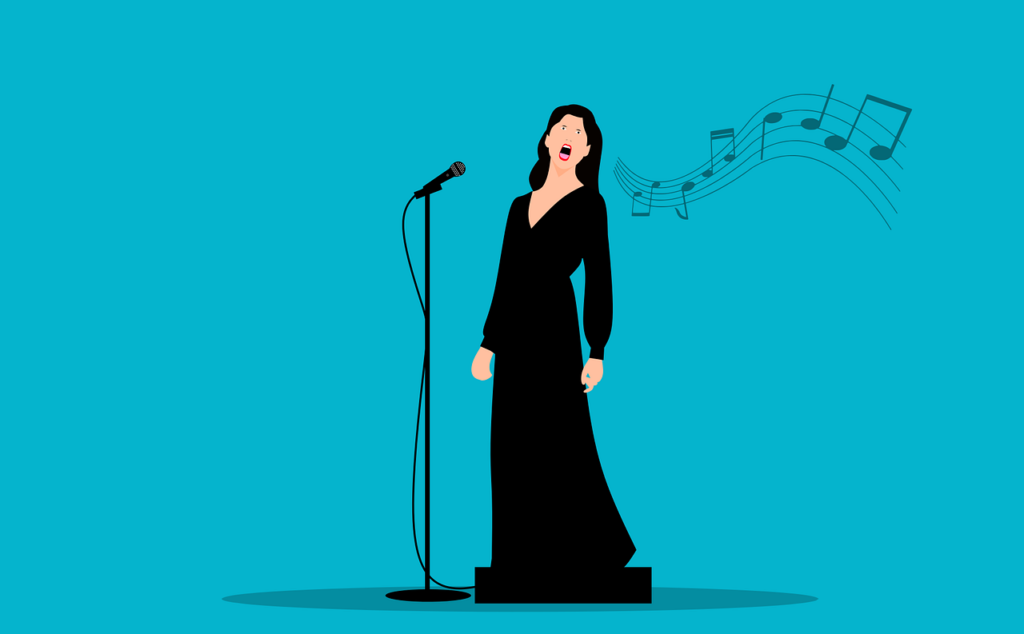- Conquering stage fright by boosting confidence levels, undertaking relaxation exercises, and imagining positive outcome scenarios.
- Learn to harness the benefits of positive self-talk, deep breathing, and meditation to keep one level-headed in performance situations.
- Find a good support group for motivation and seek new chances that lead to maximum personal development.
How to Get Over Stage Fright In 2024?
Overcoming stage fright can be a daunting task. You can take control of your self-confidence by:
- Use visualization techniques to relax before going on stage.
- Prepare by rehearsing, being completely attuned to the performance environment, and getting feedback from your support network.
- Obtain professional help – in particular, Cognitive Behavioral Therapy is one way of tackling social fearfulness and performance anxiety that focuses on changing thinking patterns.
What is Stage Fright?

Stage fright is a phenomenon that doesn’t discriminate; even people who appear comfortable being in public experience this issue.
It is not easy to take center stage. Whether your presenting to a large group, acting in front of a camera, or simply partaking in boardroom discussion, the stakes are high.
Picture the scene: a line slips from memory, you lose character, and panic sets in. That dread doesn’t just sneak up – it storms in, shattering confidence and dashing any aspirations of excellence.
I conquered my stage fright a long time ago. In my line of work, it’s kind of a pre-requisite that you not feel bad about looking stupid in front of a lot of people.
Buzz Osbourne
If the idea of standing in front of a crowd and performing sends shivers down your spine, you’re in good company. There are millions of people out there who grapple with performance anxiety, often referred to as “stage fright”. This fear doesn’t just plague the common man; it’s something that athletes, musicians, actors, and public speakers often struggle with as well.
Let’s explore tactics to overcome pre-performance anxiety and shine confidently in front of a crowd. From conquering jitters to managing fear, these tips will help ease any worries about facing an audience.
Related: Conquer Public Speaking Anxiety: Proven Strategies to Overcome Your Fear.
Understanding Stage Fright
Stage phobia is anxiety or fear caused by speaking or performing in front of a crowd. Also known as presentation anxiety, performance anxiety, or glossophobia (a fancy name for the fear of public speaking), this is a prevalent phobia, with statistics showing that 77% of the population experiences public speaking anxiety.
Performance anxiety manifests itself in physical symptoms such as an increased heart rate, tight throat, and raised blood pressure from the body’s fight-or-flight response. To manage these feelings, building confidence and self-esteem and devising strategies to reduce your stress levels on a public stage is essential.
Stage fright can be disruptive, but grasping its cause is a key step towards decreasing it.
If you have stage fright, it never goes away. But then I wonder: is the key to that magical performance because of the fear?
Stevie Nicks
Before a public performer can effectively utilize techniques such as boosting self-esteem to mitigate the common symptoms of this nerve-wracking condition, they must first acknowledge their anxiety. This applies whether they’re delivering speeches, conducting interviews, presenting, auditioning, or performing in general.
Causes of Stage Fright
Performance anxiety occurs simply because of stress and anxiousness to perform in public. Initially, acknowledging your weaknesses and insecurities when it comes to performance anxiety is a crucial measure you need to undertake. It is worth noting that no one is perfect, nobody expects perfection of you, and making mistakes is just OK.
This fear can be so severe that some may fear failure or embarrassment. Another view is that stage fright is a manifestation of social anxiety disorder, which itself originates from a phobia of criticism or being judged.
I still suffer terribly from stage fright. I get sick with fear. Not every night, but at the beginning and on occasion – not necessarily when I’m expecting it. You just have to cope with it – take it on the chin and work through it, trying to use the adrenalin to perform.
Helen Mirren
The next step is to redirect your negative thoughts, beliefs, images, and predictions about performance on stage. This is not as hard as it sounds.
Strategies to Overcome Stage Fright

To confront the daunting feelings of stage fright and turn performance anxiety to your advantage, a custom approach is crucial. Building self-assurance, mastering calming practices, and engaging in mental visualization are vital strides toward surmounting stage apprehension. Everyone faces unique challenges. Tapping into your innate abilities can be a powerful strategy.
To better control your emotions and seize opportunities, learn how to overcome performance anxieties in three specific areas.
👌 Building Self-Confidence
High confidence in your abilities while maintaining a positive mindset could help in managing stage fright. As part of this, you need to prepare for the show beforehand to be confident while performing. Concentrating on strengths, employing deep breathing exercises, and self-hypnosis, for instance, will boost confidence while lowering anxiousness.
Your body language should coincide with your confidence as it silently communicates about you to the audience. Such focus also enhances performance, even when there’s anxiety about the audience’s reaction. Positive self-talk can boost motivation. It highlights the importance of mentally practicing success before performing. Remember, you already have all the tools you need.
Related: 10 Proven Public Speaking Strategies to Boost Your Confidence and Impact.
🧘 Mastering Relaxation Techniques
Slow, deep breaths help to calm the nerves, get rid of apprehension before appearing on the stage, and alleviate stage fright. This kind of breathing decreases the heart rate and blood pressure, enabling performers to stay calm on the stage.
Engaging in mindfulness meditation assists individuals in maintaining their focus on the moment. This enables them to utilize their capabilities when faced with pressure. Prior, to a performance or presentation incorporating relaxation techniques into your routine will aid in remaining composed and confident. These techniques can also contribute to finding peace particularly when experiencing feelings of anxiety.
👁️ Harnessing the Power of Visualization
Visualization techniques like mental rehearsal and constructive thinking can boost confidence levels, positively impacting performance. Instead of worrying about yourself, you should focus on the audience to turn nervousness into eagerness and show off your skills on stage.
Example For instance just picture yourself up on the stage basking in the glow of the spotlight with your audience completely engrossed in every word you say. Visualize their faces lighting up as you confidently and passionately deliver your lines. The resounding applause that follows serves as a validation of your captivating performance. By visualizing success you cultivate self assurance.
Effectively prepare yourself for various scenarios that may arise during a performance. When you imagine an outcome you condition your mind to anticipate it thereby reducing anxiety and significantly increasing your chances of achieving success.
Related: 10 Public Speaking Exercises to Boost Your Presentation Skills.
Preparing for Success

You can conquer stage fright by rehearsing effectively and getting familiar with the performance environment. This will build your self-confidence, reduce fear of performing on stage, lower anxiety, and increase the chance of a positive outcome.
🎤 Effective Rehearsal Strategies
It is important to rehearse intensely and at full volume to correct errors and gain confidence in order to conquer stage fright. Practicing using an exact performance site creates a feeling of being in tune with the acoustics, stage setup, and general atmosphere, which enables you to alter things during the show.
Identifying errors before the performance will make you more comfortable and prepared. It will help you handle the material and deal with unexpected problems that may come up during the performance.
🎥 Adapting to the Performance Environment
Performers can overcome stage fright by creating pre-performance rituals and selecting a focal point in the performance area. This helps them shift their attention away from their own thoughts and become more composed while on stage.
Example For instance, a ritual might involve something basic as a particular prepping routine or taking a few moments for peaceful contemplation. Engaging in these rituals can provide individuals with a sense of stability and self assurance, in their capacity to achieve success.
As for choosing a focal point, this could be a friendly face in the audience, a spot on the back wall of the venue, or even a mental image that brings comfort. Performers can create intimacy and connection by focusing on this point. This makes the performance feel like a conversation instead of an overwhelming exhibition. It also helps performers stay composed.
The Role of Support Networks
Having an environment of love and understanding from friends, family, or fellow performers can help you manage stage fright. This network gives emotional support to stand up against anxiety when facing the audience at a performance. With their direction and advice on how they have dealt with similar situations, it will become easier for someone to overcome fear within themselves while strengthening self-assurance.
Your support network can also serve as a mock audience, providing helpful feedback during your practice sessions and bolstering your bravery for the big moment on stage.
Professional Help for Persistent Stage Fright

For those affected by stage fright or anxiety disorders, professional help such as therapy and medication may be essential in order to surmount the issue. Cognitive Behavioral Therapy is one way of tackling social fearfulness and performance anxiety that focuses on changing thinking patterns during situations involving public speaking.
Beta-blockers are medications that can give relief from anxiety related to being up on a stage – but they have side effects like fatigue, dizziness, and in some cases, a rise in blood pressure.
These medications inhibit the release of adrenaline, which is a hormone that your body produces in response to stress. This action slows down your heart rate and can alleviate physical symptoms of anxiety such as rapid heartbeat and palpitations. Beta blockers are commonly prescribed for heart conditions and hypertension. Additionally they can be beneficial, in managing performance related anxiety.
Beta-blockers can help with physical symptoms of stage fright. However, they don’t address the psychological aspects of performance anxiety. You may feel physically calmer and more in control, but you may still have negative thoughts and worry. Beta-blockers are not a permanent solution and should not be relied upon for long-term anxiety management.
Related: Should You Take Beta Blockers for Public Speaking Anxiety?
Summary
Overcoming stage fright can be a daunting task. You can take control of your self-confidence and use visualization techniques to relax before going on stage. To succeed, prepare by rehearsing, checking the performance environment, and getting feedback from your support network.
It may take time and effort. With dedication, you can absolutely conquer your fears to perform at your highest potential without worrying about fear ruining your performance onstage.
How can I reduce my stage fear?
Get a full night of rest before facing stage fright for the best outcome. Before speaking or performing on any platform, try prepping ahead and talking positively about yourself. To improve your odds of a successful performance, create a calming environment for yourself. Engage in activities like visualizing overcoming any fears you have about public speaking or performing in front of an audience.
Does stage fright ever go away?
Stage fright can be overcome. People find that the fear melts away on stage, and they can access flow. Taking the right steps can help to flip the script on performance anxiety.
How do you get over stage fright in 5 minutes?
Reduce your stage fright in 5 minutes by getting your head in the right place, belly breathing, turning negative talk into positive thinking, standing straight and opening up your chest, letting go of intrusive thoughts, greeting your audience, practicing, visualizing success and acknowledging that mistakes are part and parcel of every performance.
How can visualization techniques improve my performance?
Visualization techniques, also known as mental rehearsal, are powerful tools used by many successful individuals from athletes to musicians and public speakers. These techniques involve creating a mental image of a specific event or outcome, which can help to enhance focus, boost confidence, and improve overall performance.

